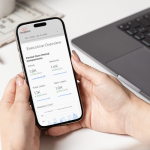
Are you finding that your Looker Studio dashboards, which rely on data from Google BigQuery, are running sluggishly? It's a common frustration, but there are several strategies you can employ to optimize performance and ensure your analytics operate smoothly.
Summarize Your Data and Update Frequencies
One effective way to improve performance is to summarize your data at appropriate levels and adjust update frequencies. Instead of querying raw, granular data every time, consider pre-aggregating it into summarized tables or materialized views. This approach reduces the amount of processing required when generating reports or dashboards, resulting in faster response times. Additionally, revisiting the update frequency of your data can also make a significant difference. Depending on your business needs, you might find that updating certain datasets daily, hourly, or even in real-time improves performance while still providing timely insights.
Avoid Connecting Looker Studio to Sharded Tables
Sharded tables, which are partitioned into smaller subsets across different nodes, can introduce complexity and performance challenges when connected to Looker Studio. Instead, opt for non-sharded tables whenever possible. By querying data from cohesive, unpartitioned tables, you simplify the data retrieval process and minimize potential bottlenecks, leading to smoother performance within Looker Studio.
Consider Materialized Views
Materialized views offer another avenue for optimizing Looker Studio and BigQuery performance. Unlike traditional views, which execute queries dynamically each time they're accessed, materialized views store precomputed results. This means that queries against materialized views can yield faster response times, especially for complex or frequently accessed data. By strategically creating and maintaining materialized views based on your analytical needs, you can further enhance the efficiency of your Looker Studio dashboards
If you're experiencing sluggish performance with Looker Studio and BigQuery, implementing these optimization techniques can help alleviate the issue. By summarizing data, avoiding sharded tables, and leveraging materialized views, you can enhance the speed and responsiveness of your analytics platform, enabling your organization to make informed decisions more efficiently.
Need Help?
At Calibrate Analytics, we specialize in designing, setting up, and implementing Google BigQuery solutions tailored to your specific needs. With our deep expertise in data architecture and analytics optimization, we can help you harness the full potential of BigQuery to unlock actionable insights and drive business growth. Whether you're looking to streamline your Looker Studio dashboards, optimize data processing pipelines, or develop advanced analytics solutions, our team is equipped to guide you every step of the way.






